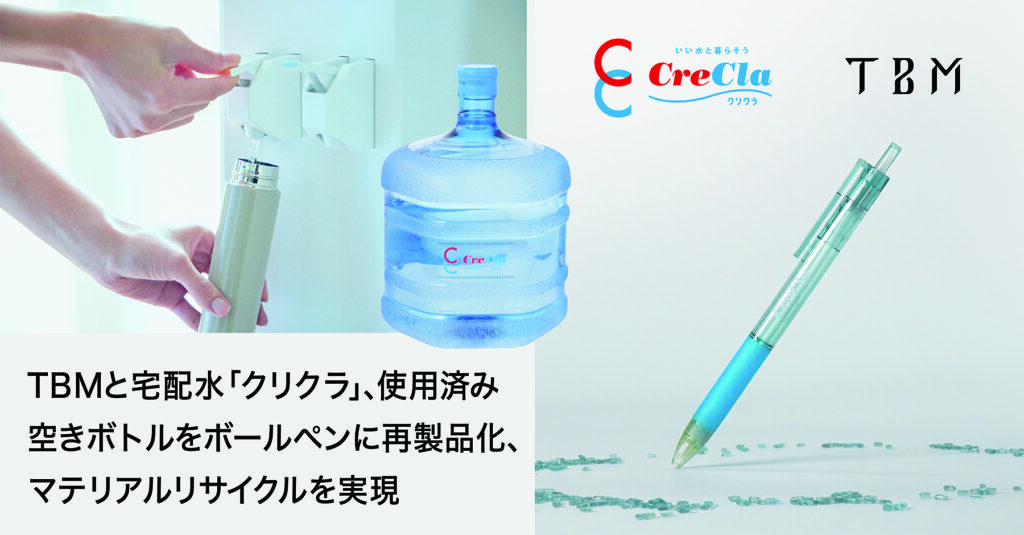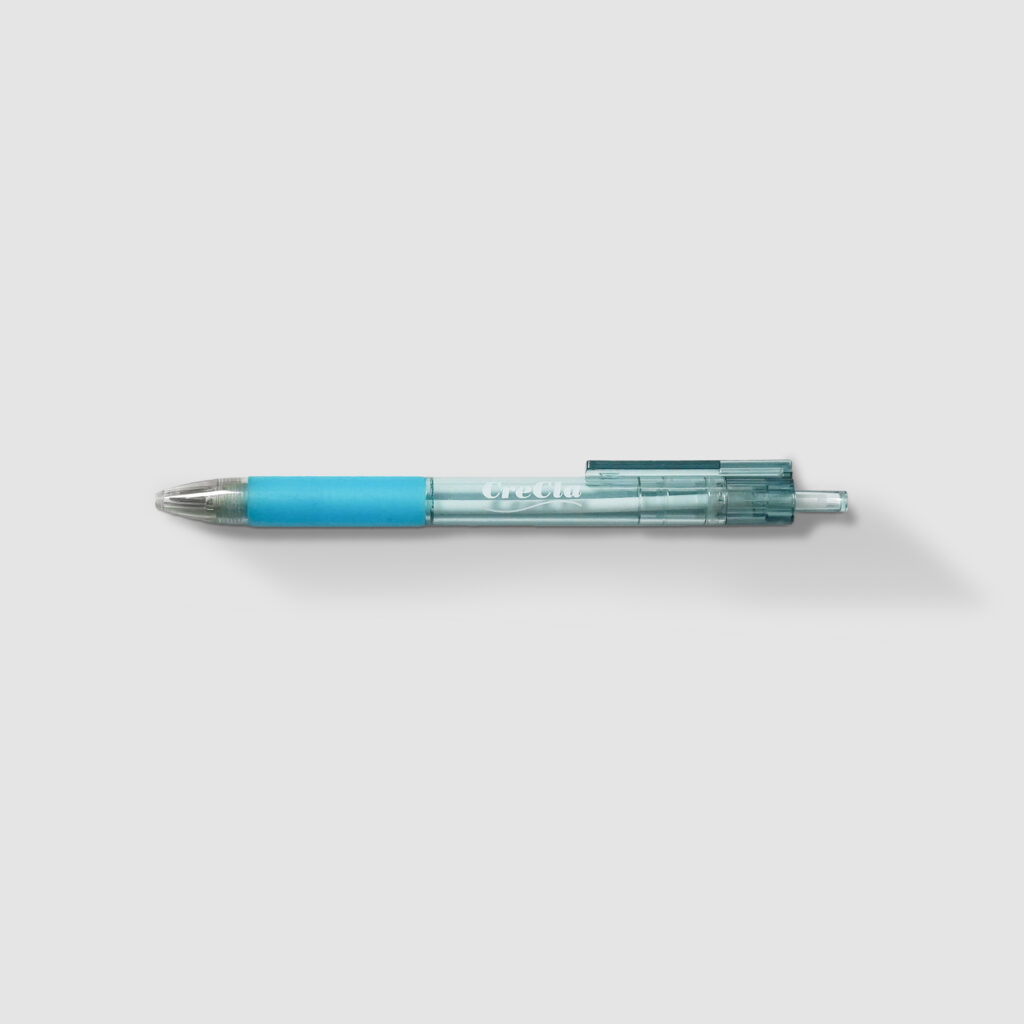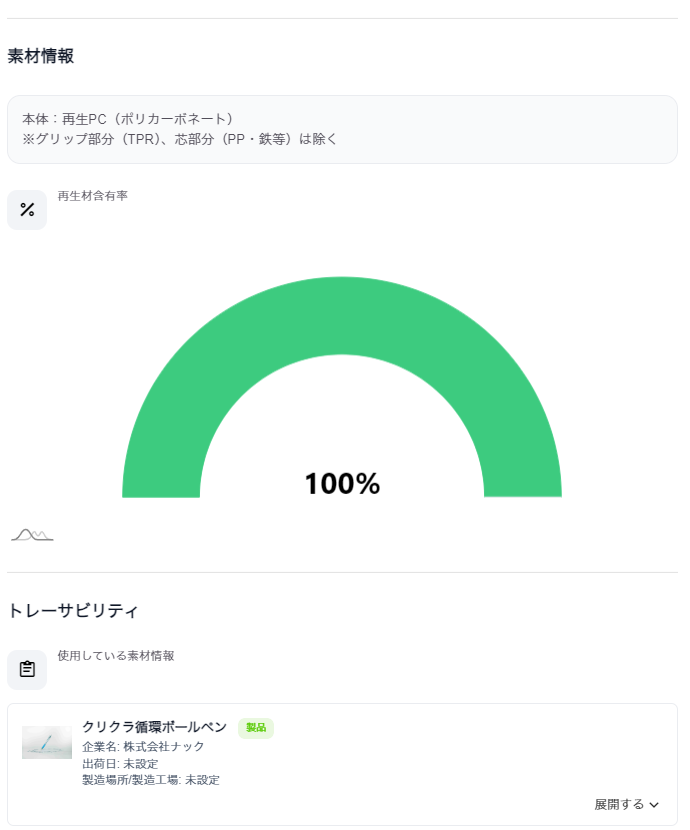プレスリリース
- MaaR
- 資源循環
TBM と宅配水「クリクラ」のナック、マテリアルリサイクルを通じて使用済みの空きボトルをボールペンに再製品化
~Maar再生材調達を活用してDPP対応を見据えたトレーサビリティ情報を可視化~

株式会社TBM(本社:東京都千代田区、代表取締役CEO:山﨑敦義、以下 TBM)は、この度、株式会社ナック (本社:東京都新宿区、代表取締役社長:吉村寛、以下ナック) と連携し、ナックが FC 展開する宅配水「クリクラ」の空きボトルを回収・再資源化し、マテリアルリサイクルを通じてボールペンに再製品化しました。今回制作したボールペンは、国内外の教育支援施設等への寄贈を予定しています。
■ 背景
TBMはこれまで、国内最大級のマテリアルリサイクルプラントの運営や、全国で100社を超えるリサイクルパートナーとの連携を通じたプラスチックの回収及び再生プラスチックの販売、再生材「CirculeX(サーキュレックス)」を使用した製品企画、東南アジアを中心とした再生プラスチックの海外販売に取り組んでいます。2021年から取り組んでいる再生材等のマッチング事業は、現在、年間3.4万t規模での取引実績が生まれています。
安心・安全なおいしい宅配水「クリクラ」を展開するナックは、事業開始当初より「サステナブルなボトル」を採用し、使い捨てではなくリユースすることで、環境にやさしい循環型社会を目指す取り組みを行ってきました。さらに、リユース工程で傷がついたボトルやキャップも廃棄することなく、オリジナルの定規やマイボトルに作り替えています。
■ 取り組みの概要
この度、ナックが再生材製品のラインナップの拡大を検討するにあたり、TBMの「CirculeX」をはじめとする再生材を活用した製品企画の実績と資源循環の取り組みを評価いただき、連携に至りました。TBM が空ボトルを回収・再資源化し、マテリアルリサイクルを通じて制作したボールペンは、国内外の教育支援施設等への寄贈を予定しています。
また今回のマテリアルリサイクルの取り組みでは、TBMの提供するトレーサビリティ情報等を付与した再生材や再生原料の調達プラットフォーム「Maar 再生材調達」のDPP*に適応した事項の可視化機能を活用し、再生材含有率や、原料から再製品化までのトレーサビリティを可視化するなど、将来的なDPP対応を見据えた消費者への環境性、循環性の訴求に取り組みました。
今後 TBM とナックは、付加価値の高い再生材製品の企画に向けて連携を強化していきます。
・



■ 担当者コメント
・株式会社ナック 商品部 部長 安斎 太郎
「私達は、サステナブルな社会の実現を目指した取り組みとして、これまでもウォーターボトルのリユースとリサイクルに取り組んできました。今回、高い志で資源循環の促進に取り組んでいるTBM社から、企画のご提案から回収・再製品化まで迅速に対応していただき、ウォーターボトルからボールペンへのリサイクルが実現しました。捨てられるはずだったものを価値あるアイテムに変えることで、環境への配慮と持続可能な未来への貢献に繋がると信じています。この取り組みが世界に広がり、私たちの地球がより美しくなることを目指して、ぜひ今後も連携していきたいと思います。」
・株式会社TBM 資源循環事業本部 Maar事業部 大島 紀康
「資源循環のお取り組みをナック社とご一緒でき、大変嬉しく思います。今回は、捨てられるはずだったウォーターサーバーのボトルから、価値あるボールペンを生み出すご支援をさせていただきました。一度は使われた容器が、再び違う形となって生まれ変わる。持続可能な社会の実現に向け、資源循環が当たり前になるよう、引き続き価値ある活動に取り組んで参ります。」
